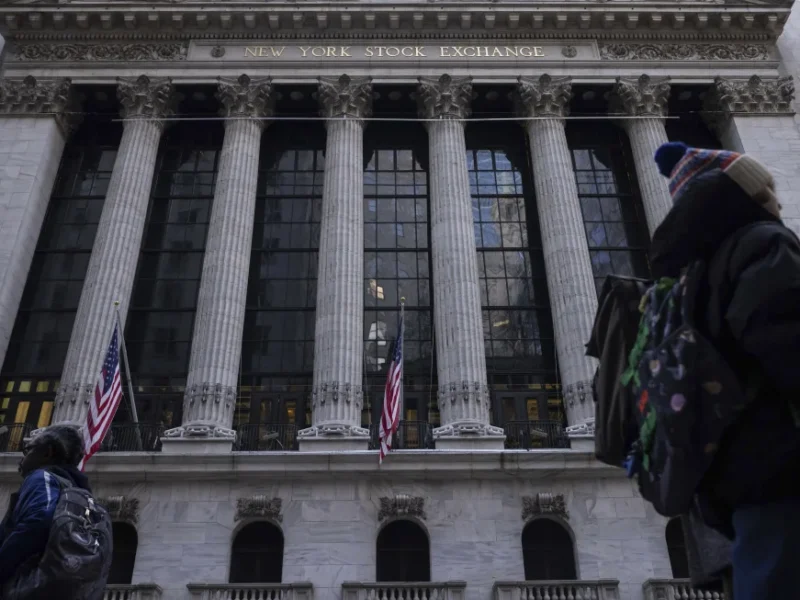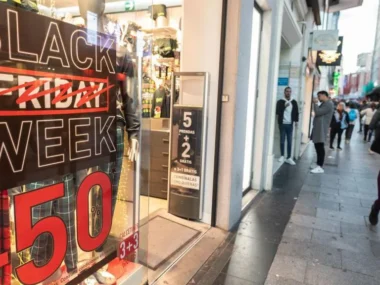Engaging in deals is a significant aspect of Wall Street operations. When companies merge or one acquires another, it opens up opportunities for investors and financial institutions to generate profits through advisory services or financing the deal. This process often results in favorable payouts for investors and employees.
However, mergers and acquisitions (M&A) have been scarce in recent years. Goldman Sachs experienced notable drops in revenue last year, with 2023 marking one of the lowest points in M&A activity in the past decade. Various challenges, including recession concerns, historically high interest rates, and geopolitical tensions, have contributed to the decline in deal-making.
Despite these challenges, Goldman Sachs has maintained its position as the leading M&A adviser globally for seven consecutive years. In 2023, the bank advised on 235 deals amounting to over $670 billion, representing nearly a third of the total global M&A advisory market.
Stephan Feldgoise, Goldman Sachs’ co-head of global M&A, discussed the future of M&A and what to anticipate in the upcoming earnings season in an interview with Before the Bell, which has been edited for clarity and length.
Reflecting on the past, Feldgoise rated 2021 as a strong period for M&A, but noted a significant decline in activity in 2023. Currently, the market is experiencing intermittent activity, with some weeks characterized by numerous transactions (“starts”), while others are notably quiet (“fits”). Despite this fluctuation, Feldgoise expressed cautious optimism about the market’s direction.
There are positive indicators and trends to note, such as a robust start to the year in terms of transactions exceeding $10 billion, and the overall transaction volume for Goldman Sachs aligning with the averages observed from 2015 to 2019. Although these markets were not exceptional, they were stable, which provides reassurance about the current state of affairs.
What is the significance of the “fits and starts”? Should we be interpreting these sporadic bursts of activity?
The occurrence of “fits and starts” can be attributed to significant risk factors experienced at different times, including geopolitical tensions, interest rates fluctuations, and specific issues in banks’ securities portfolios. These factors directly influence the primary driver of M&A, which is CEO and board confidence. Despite this, investors and employees remain supportive. Confidence levels fluctuate due to various factors that either bolster or undermine it.
The term “green shoots” is often used concerning M&A, indicating the initial signs of activity emerging. However, the timing of when these shoots will fully develop into significant growth is uncertain. Unlike a steady growth pattern, likened to plants steadily growing through spring, the M&A market’s trajectory involves intermittent progress and setbacks. While there’s an underlying positive trend that gradually builds momentum over time, it’s not a linear progression. Instead, there will be periods of advancement followed by setbacks, resembling a “two steps forward, one step back” scenario.
What is the significance of M&A and why should individuals be attentive to it? What insights does it offer about the state of the economy and financial markets?
Undoubtedly, M&A has significant implications for numerous businesses, consumers, and particularly for individuals invested in the stock market. Consider, for instance, the prevalence of public-to-private leveraged buyouts, which constitute a substantial portion of these transactions. Such investments are often held by retail investors, who play a crucial role as shareholders in many companies involved in M&A activities. Moreover, the impending election holds importance, as elections can significantly influence the landscape of M&A. Given the anticipated fervor and emotional context surrounding this election, it will undoubtedly affect how individuals perceive and approach risk-taking in the market.
Jamie Dimon suggests that Artificial Intelligence (AI) has the potential to be as impactful on the economy as electricity.
Jamie Dimon believes that artificial intelligence (AI) will have a profound impact on global business this year. As one of the world’s most influential business leaders, Dimon stated in his annual shareholder letter on Monday that while the full extent of AI’s effects on business, the economy, and society remains uncertain, its influence will undoubtedly be significant.
Dimon compared the potential impact of AI to that of major technological inventions throughout history, such as the printing press, the steam engine, electricity, computing, and the Internet. The AI revolution has already reshaped workplaces worldwide, with nearly 40% of global employment potentially facing disruption due to AI, according to the International Monetary Fund. Various industries, including medicine, finance, and music, have already experienced the transformative effects of AI.
Stocks of companies involved in the AI sector have seen remarkable gains, with chipmaker Nvidia surging over 219% in the past year, and Microsoft rising nearly 50%.
JPMorgan Chase, the world’s largest bank by market capitalization, is actively exploring the potential of generative AI within its own operations. Dimon highlighted that software engineering, customer service, operations, and overall employee productivity are undergoing AI transformations.
Dimon also acknowledged the risks associated with the AI boom, particularly concerning cybersecurity threats. He noted the increasing attempts by hackers to infiltrate companies’ systems to steal money, intellectual property, or cause disruption and damage. JPMorgan Chase, as the largest US bank by assets, invests $15 billion annually and employs 62,000 technologists to strengthen its defense against cybercrimes.
A lottery ticket sold in Oregon has emerged as the winner of the nearly $1.33 billion Powerball jackpot.
It has been quite a while since there was a significant Powerball payout, with the last jackpot being claimed on New Year’s Day at a supermarket in Michigan. Following that win, there were 40 consecutive drawings without a winner. However, this streak ended last weekend.
A Powerball ticket sold in Oregon emerged as the winner of the nearly $1.33 billion jackpot in the early hours of Sunday morning. This jackpot ranks as the fourth-largest in the game’s history, according to Powerball.
The fortunate individual holding the winning ticket will have the option to choose between receiving the prize as an annuity or as a lump sum payment of $621 million, both amounts being before taxes.
In addition to the jackpot win, there were other significant winners this weekend. Seven tickets matched all five white balls, entitling their holders to $1 million prizes each. These winning tickets were sold in Arizona, Delaware, Florida, Iowa, Massachusetts, Michigan, and Wyoming, as announced by Powerball.











